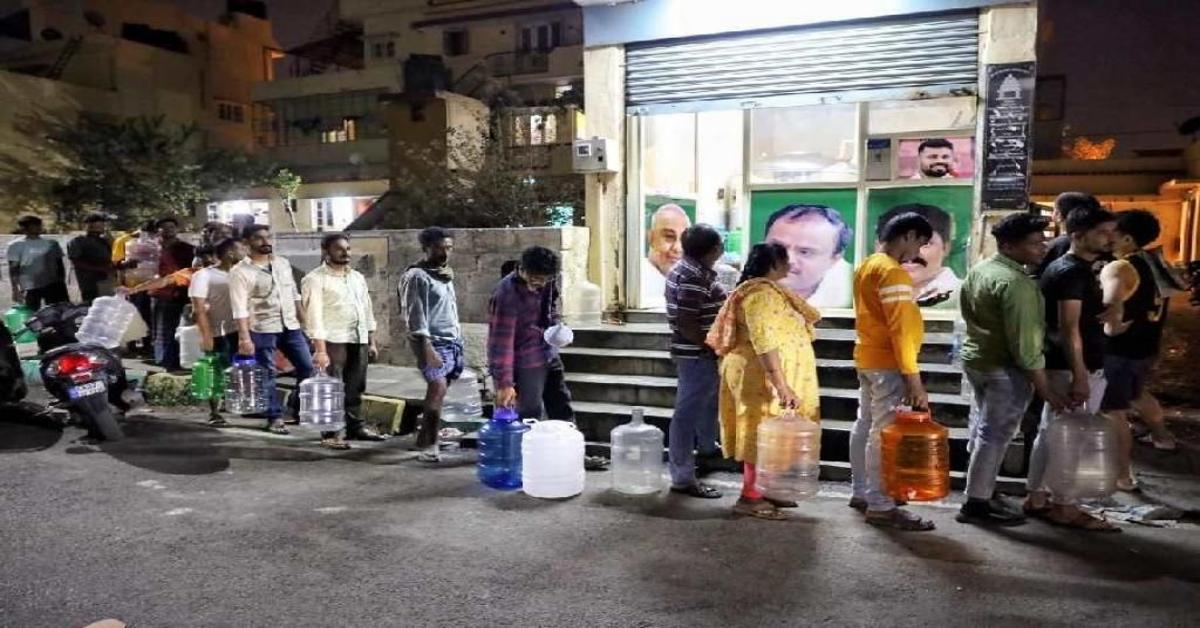
Bengaluru faces severe water crisis as its 15 million residents, from low-income suburbs to upscale tech hubs, grapple with dwindling supplies, daily struggles for basic needs
Bengaluru, once known for its lush gardens and pleasant climate, is now grappling with a severe water shortage, as residents and businesses in India's tech hub struggle to cope with the dwindling supplies.
Bengaluru, home to major tech companies like Infosys and Wipro, requires approximately 2 billion liters of water daily for its 15 million residents. However, due to rapid urbanization, deforestation, and climate change, the city's water sources are under significant strain.
The crisis is palpable in the city's outskirts, particularly in areas like Bandepalya. Residents queue for hours for water tankers, which arrive as infrequently as once every two weeks.
The situation has led to conflicts among residents as they compete for scarce resources. "Sometimes fights break out, there is a lot of arguing," shared Susheela, a local resident.
The crisis is pushing families to their limits. Many residents, earning between 6,000 ($72.39) and 8,000 Indian rupees a month, are now forced to allocate half of their income to buy water. Geeta Menon, a social worker, warns of rising diseases and hygiene issues as children resort to defecating on the streets due to a lack of water at home.
This situation has not spared the city's upper-middle class either, with apartment complexes urging residents to drastically reduce their water usage. In addition to residential distress, the crisis has slowed down garment factory production and doubled restaurant water bills, according to CNN.
The city's dependency on the Cauvery River for more than 70% of its water supply is a part of the problem. A weak monsoon last year further depleted groundwater levels, creating a shortfall of 200 million liters in daily water supply, reported BBC Hindi. Civic activist Srinivas Alavilli stressed that while traffic is often seen as Bengaluru's biggest problem, water is a much larger issue.
Efforts are being made to address this crisis. The government has capped prices for water tankers and is considering using milk tankers for water distribution. Restrictions on using potable water for non-essential purposes have been imposed, with violators facing fines. Additionally, phase five of the Cauvery project, expected to be completed by May, aims to alleviate some of the water shortage issues.
However, the crisis has also become a political issue, with parties blaming each other for mismanagement in the lead-up to national elections. In the midst of this, residents continue to endure hardships, raising concerns about the city's future sustainability and the well-being of its inhabitants.
Source: Newsroom